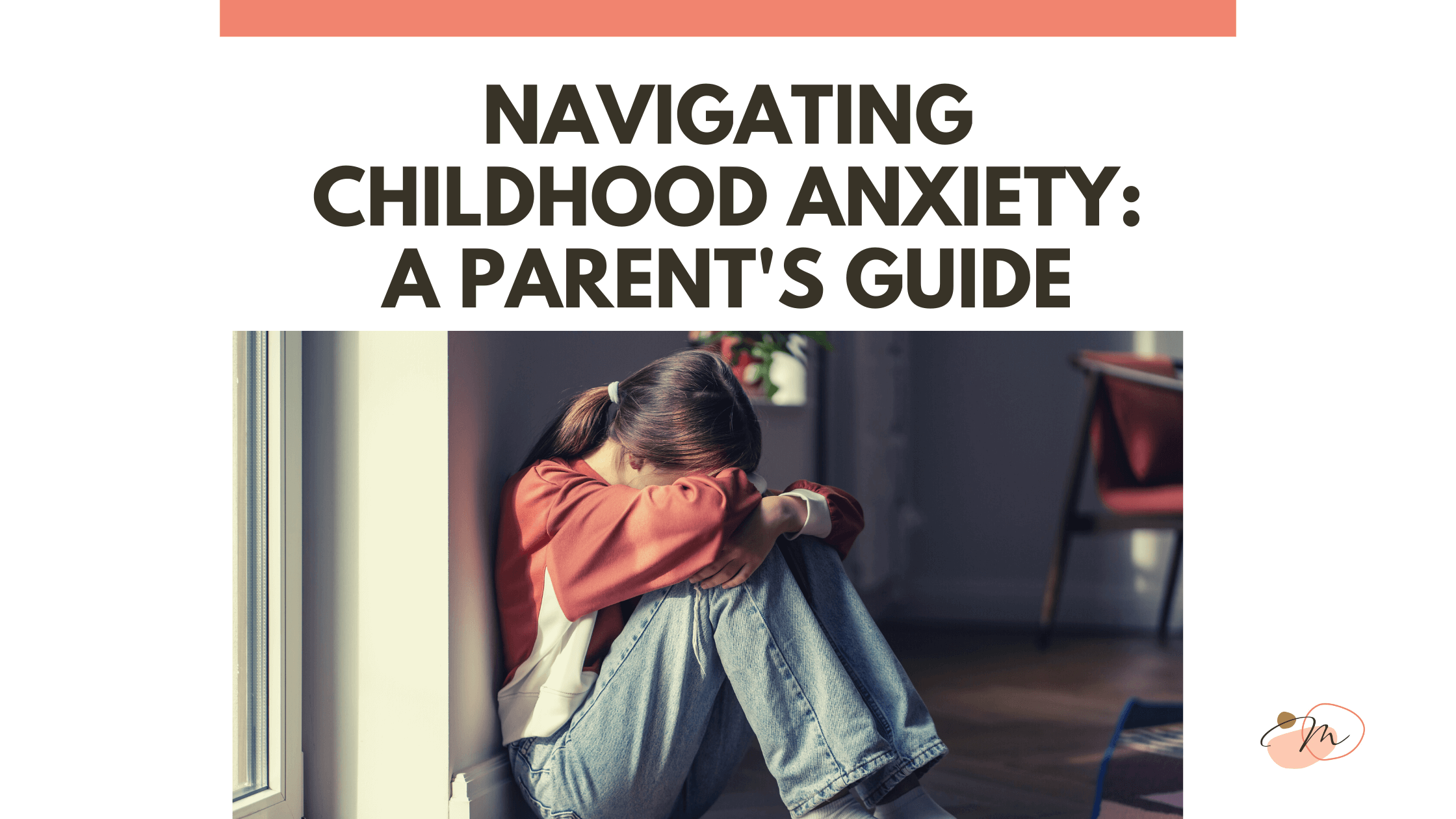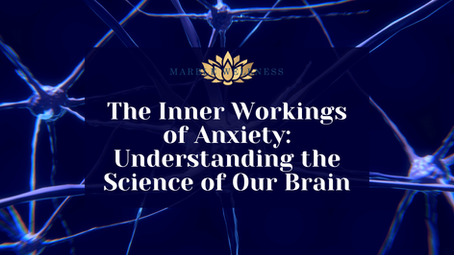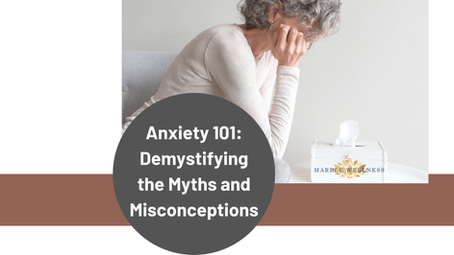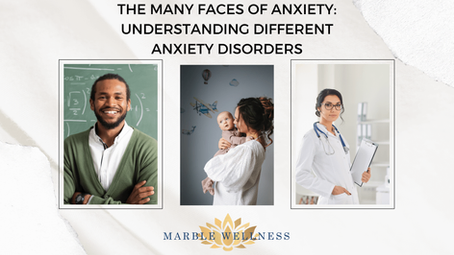As a parent, it’s natural to want to shield your child from anxiety and its effects. Yet, understanding how anxiety manifests in childhood is key to providing effective support.
Anxiety is a common emotion experienced by children. However, it’s essential to recognize that some children may express their underlying anxiety through other emotions or behaviors.
These alternative expressions may not always be immediately recognizable as anxiety but can indicate an underlying anxiety issue.
Understanding Alternative Expressions of Childhood Anxiety
Anger or Aggression
Some children may express their anxiety through anger or aggression. They may lash out verbally or physically when they feel overwhelmed or threatened by their anxious thoughts and feelings.
This can be a defense mechanism to protect themselves from perceived threats or to regain a sense of control in challenging situations.
Sadness or Withdrawal
Instead of displaying overt signs of anxiety, some children may internalize their feelings and present as sad or withdrawn. They may appear tearful, sullen, or disengaged from activities and social interactions.
This withdrawal may serve as a coping mechanism to avoid situations that trigger their anxiety or to retreat from overwhelming emotions.
Perfectionism
While perfectionism can be a symptom of anxiety itself, some children may exhibit perfectionistic tendencies as a way to manage their anxiety.
They may strive for perfection in academics, sports, or other areas of their lives as a means of gaining a sense of control and reducing feelings of uncertainty or inadequacy.
Difficulty with Transitions
Childhood anxiety may also be triggered by transitions or changes in routine, leading to resistance or reluctance to participate in new activities or environments.
Children may become overwhelmed by the uncertainty of unfamiliar situations and may exhibit resistance, tantrums, or oppositional behavior as a result.
Excessive Seeking of Reassurance
Some children may constantly seek reassurance from caregivers or authority figures to alleviate their anxiety. They may repeatedly ask questions or seek confirmation about potential threats or dangers, seeking validation or relief from their anxious thoughts.
Hypervigilance or Overreaction to Minor Stressors
Children with anxiety may demonstrate hypervigilance or overreact to minor stressors or perceived threats. They may become excessively worried or preoccupied with unlikely or minor events, leading to heightened arousal and exaggerated emotional responses.
Avoidance Behaviors
Instead of directly confronting their anxiety-provoking situations, some children may engage in avoidance behaviors as a means of coping. They may actively avoid situations, places, or activities that trigger their anxiety, opting to withdraw or escape from challenging situations altogether.
Physical Complaints
While physical complaints such as stomachaches or headaches are commonly associated with anxiety, some children may use these symptoms as a way to express their underlying emotional distress.
They may complain of physical ailments when faced with stressful or anxiety-provoking situations, using somatic complaints as a means of seeking attention or avoiding perceived threats.
Supporting Your Child Through Anxiety
If your child is exhibiting signs of anxiety, there are several strategies you can implement to support them effectively:
Create a Safe and Supportive Environment
Foster an atmosphere of trust and open communication at home where your child feels comfortable expressing their emotions. Let them know that it’s okay to feel anxious or upset and that you’re there to listen and support them without judgment.
Validate Their Feelings
Acknowledge and validate your child’s emotions, even if they manifest as anger, sadness, or withdrawal. Let them know that you understand they’re struggling and that their feelings are valid.
Avoid dismissing or minimizing their experiences, as this can undermine their confidence and trust in seeking support.
Teach Coping Strategies
Help your child develop healthy coping strategies to manage their anxiety and regulate their emotions. Teach them relaxation techniques such as deep breathing, mindfulness, or progressive muscle relaxation.
Encourage them to engage in activities they enjoy and find calming, such as drawing, listening to music, or spending time outdoors.
Encourage Problem-Solving Skills
Empower your child to problem-solve and find solutions to their anxiety triggers. Help them identify the specific situations or thoughts that contribute to their childhood anxiety and brainstorm practical strategies to address them.
Encourage them to break tasks into smaller, manageable steps and celebrate their successes along the way.
Promote Positive Self-Talk
Teach your child to challenge negative thoughts and replace them with positive affirmations and self-talk. Encourage them to reframe anxious thoughts into more realistic and constructive statements.
For example, instead of saying, “I can’t do this,” they can say, “I’m feeling anxious, but I can try my best.”
Model Healthy Coping Behaviors
Be a positive role model for your child by demonstrating healthy coping behaviors and effective stress management techniques.
Show them how you cope with stress in constructive ways, such as taking breaks, seeking support from loved ones, and engaging in self-care activities.
Establish Consistent Routines
Maintain consistent routines and schedules at home to provide your child with a sense of stability and predictability. Consistency can help reduce feelings of uncertainty and anxiety, providing a reassuring framework for your child to navigate their day-to-day life.
Encourage Seeking Support
Let your child know that it’s okay to ask for help when they’re feeling overwhelmed or anxious. Encourage them to talk to a trusted adult, such as a parent, teacher, or school counselor, about their feelings.
Offer to accompany them to therapy sessions or support groups if they’re open to seeking professional help.
Practice Relaxation Techniques Together
Engage in relaxation exercises and activities together as a family to promote a sense of calm and connection. Consider practicing yoga, guided meditation, or progressive muscle relaxation as a family to reinforce healthy coping strategies and bond with your child.
Celebrate Progress and Effort
Recognize and celebrate your child’s efforts and progress in managing their anxiety, no matter how small.
Praise their courage and resilience in facing their fears and trying new coping strategies. Reinforce their strengths and abilities, building their confidence in managing anxiety over time.
However, if you’ve tried various strategies to help your child manage anxiety, and they still struggle to cope effectively, child therapy can be a valuable resource.
How Child Therapy Can Help with Childhood Anxiety
Child therapists are trained to work specifically with children and adolescents, understanding their unique developmental needs and challenges.
They can provide specialized support, identify underlying issues contributing to the child’s anxiety, teach coping skills, build emotional regulation, enhance communication, foster self-esteem and resilience, and provide a safe space for expression.
Specialized Support
Child therapists are trained to work specifically with children and adolescents, understanding their unique developmental needs and challenges. They have expertise in addressing anxiety disorders and can tailor therapeutic interventions to meet the individual needs of each child.
Identifying Underlying Issues
Child therapists can help identify underlying factors contributing to childhood anxiety that may not be immediately apparent to parents.
Through therapeutic assessment and exploration, therapists can uncover root causes such as trauma, family conflict, school-related stressors, or other psychological issues that may be exacerbating the child’s anxiety.
Teaching Coping Skills
Therapists utilize evidence-based techniques to teach children practical coping skills and strategies to manage their anxiety more effectively. These may include cognitive-behavioral techniques, relaxation exercises, mindfulness practices, exposure therapy, and social skills training.
By learning these skills in therapy sessions, children can apply them in real-life situations and develop greater resilience over time.
Building Emotional Regulation
Child therapy focuses on helping children understand and regulate their emotions in healthy ways. Therapists provide a safe and supportive environment for children to express their feelings, learn to identify and label emotions, and develop constructive ways to cope with stress and anxiety.
By building emotional awareness and regulation skills, children can better manage their anxiety and reduce its impact on their daily lives.
Improving Communication
Therapy provides a platform for children to express their thoughts, concerns, and fears in a nonjudgmental setting. Therapists use various techniques, such as play therapy, art therapy, and storytelling, to facilitate communication and self-expression.
By enhancing their ability to communicate effectively, children can articulate their emotions and needs more clearly, fostering healthier relationships with parents, peers, and caregivers.
Enhancing Self-Esteem and Resilience
Child therapy helps children develop a positive self-concept and self-esteem by fostering a sense of competence and mastery over their anxiety. Therapists encourage children to set achievable goals, celebrate their accomplishments, and recognize their strengths and abilities.
Through guided exploration and support, children can build resilience and confidence in their ability to cope with challenges and adversity.
Providing Support for Parents
Child therapy often involves parental involvement and support to reinforce therapeutic goals and strategies at home. Therapists collaborate with parents to develop effective parenting techniques, communication strategies, and behavior management skills.
By empowering parents with knowledge and resources, therapy can strengthen the parent-child relationship and create a more supportive family environment for the child to thrive.
Offering a Safe Space for Expression
Therapy provides a safe and confidential space for children to explore their thoughts, feelings, and experiences without fear of judgment or repercussion.
Children can freely express themselves, process difficult emotions, and work through challenging situations with the guidance and support of a trained therapist.
This can be particularly beneficial for children who may feel misunderstood or invalidated in other areas of their lives.
Start Child Therapy in St. Louis
Are you are a parent in St. Louis looking to empower your child to overcome childhood anxiety? We are here to help!
Contact Us!
Additional Counseling Services at Marble Wellness in St. Louis, MO and Chicago, IL
Counseling services are designed to help set you on a path of living a more fulfilled, calm, and happy life.
St. Louis
Our St. Louis team of therapists has a variety of training backgrounds and areas of expertise. We specialize in anxiety, depression, grief, chronic illness, therapy for men, couples, and maternal overwhelm. Our practice also helps new moms with various postpartum concerns, moms in the thick of parenting, and moms with teens. We can also chat from wherever you are in the state with online therapy in Missouri and online therapy in Illinois. No matter where you are in your journey, we would love to support you.
Chicago
Our Chicago team of therapists offers a wide range of mental health services to help our clients through the different challenges and hurdles in their lives. In addition to anxiety, depression, grief, therapy for men, and maternal overwhelm, we specialize in professional burnout, therapy for breakups, and love partnering with working moms.




